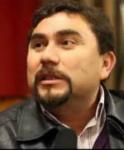The notion of “Andean science fiction” has generated countless conversations between writers, academic symposiums on the genre, and bohemian gatherings from 2000 to the present. It is always gaining more fans and, unequivocally, almost no detractors. This is a happy sign of union between a genre still forming its own boundaries and an evident regionalism, and it indicates the exponential increase in new works that shuffle the notion of territoriality along with that of fantastic textuality. These texts put pressure on space, language, and genre, hybridized with identity itself that is worthy of greater attention from fans, drawn in by the attraction of the English-speaking pole, and from academics, journalists, and educators, always in search of “local color” before authenticity.
Spanish-speaking critics and thinkers (Belevan, Barrenechea, and Roas, to name a few) have emphasized—all in their own way, with markedly different theoretical styles—that non-realist literature written in Latin America must seek out a new nomenclature, getting past the endlessly repeated slogans of Todorov, Callois, and Vax, who were still in shock after witnessing, live and in person, the bestial mating of romanticism and naturalism. And so, what for us would be constant democratic chaos, daily irritating delirium, and horror in business hours meant, for the Europeans, digging through the abhorrent depths of their most vulnerable ontology. For us, that which is unbearable for the First World is no more than everyday survival.
For this reason, science fiction can wait no longer to take action on this prickly theoretical matter, and this is why we have convened three renowned writers from the Andes to elucidate this attempt at naming a genre—Marcelo Novoa (editor and author) of Chile, Daniel Salvo (writer and educator) of Peru, and Iván Rodrigo Mendizábal (academic and researcher) of Ecuador—who lend their original visions the same territory, which has yet to be mapped. Here we can read a discourse of the future (Novoa), a necessary clarification of the present (Salvo), and a critical panorama of the recent past (Mendizábal). Enjoy this overture of Andean Science Fiction!
Marcelo Novoa
Translated by Arthur Dixon





